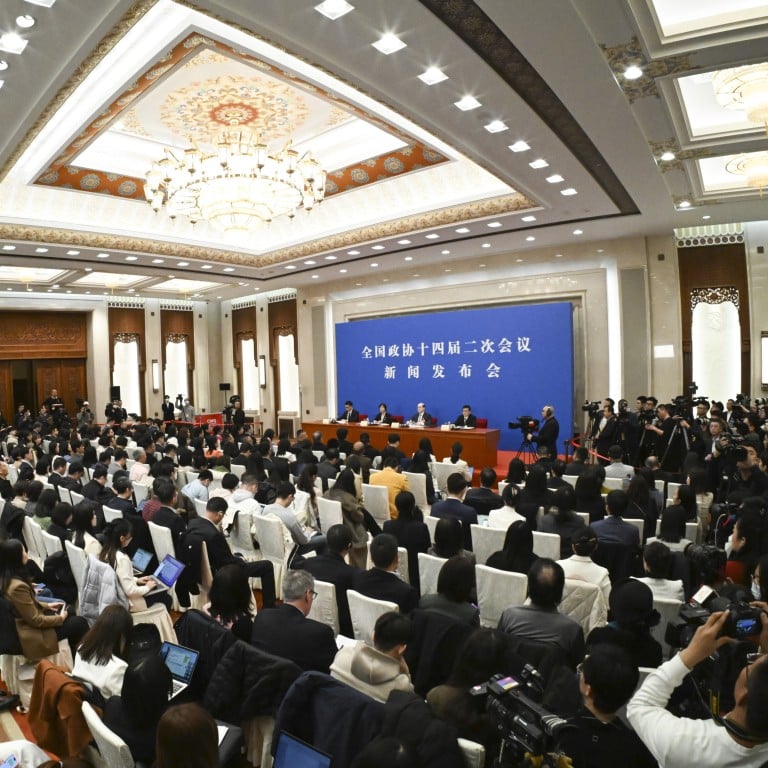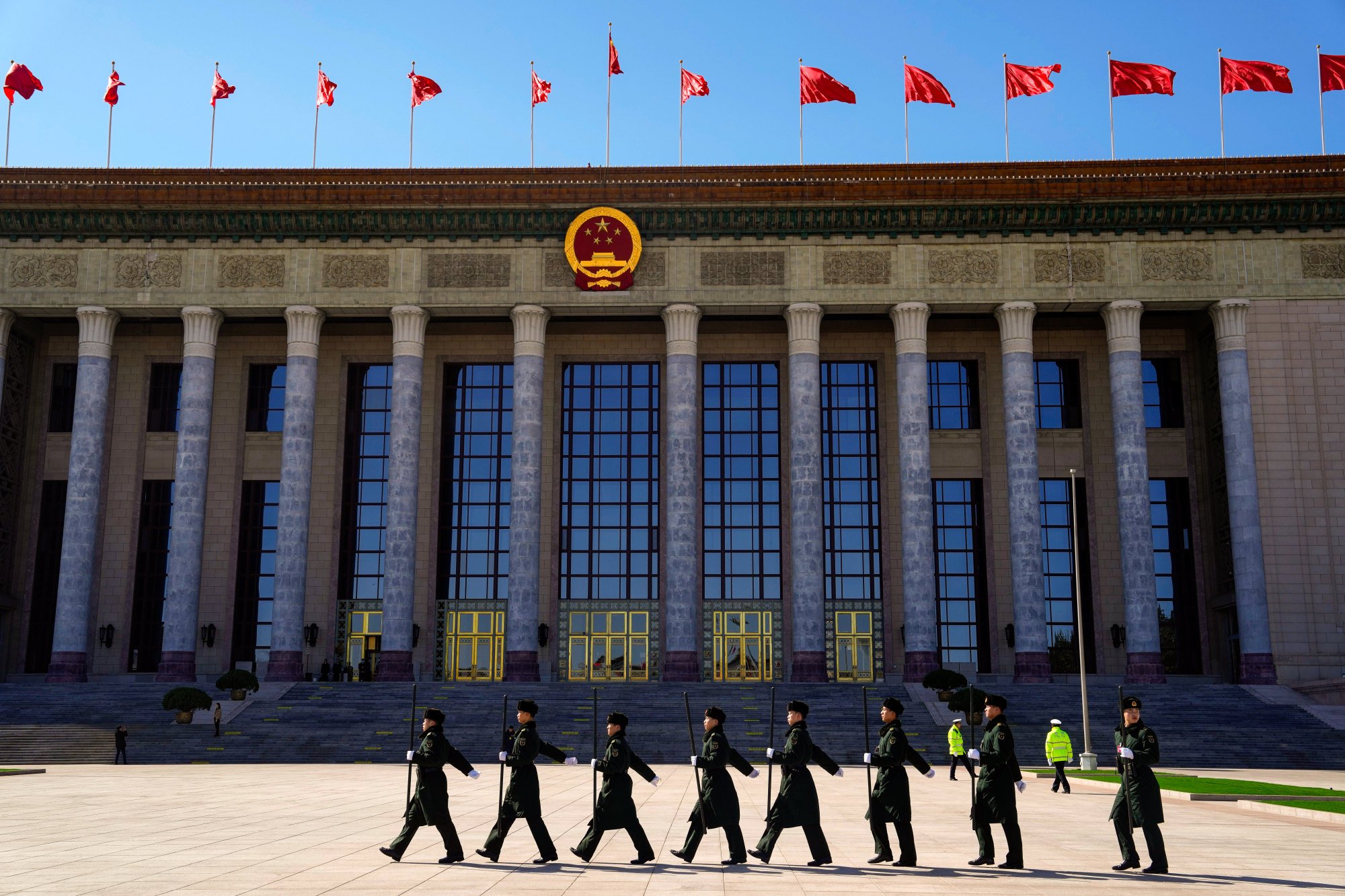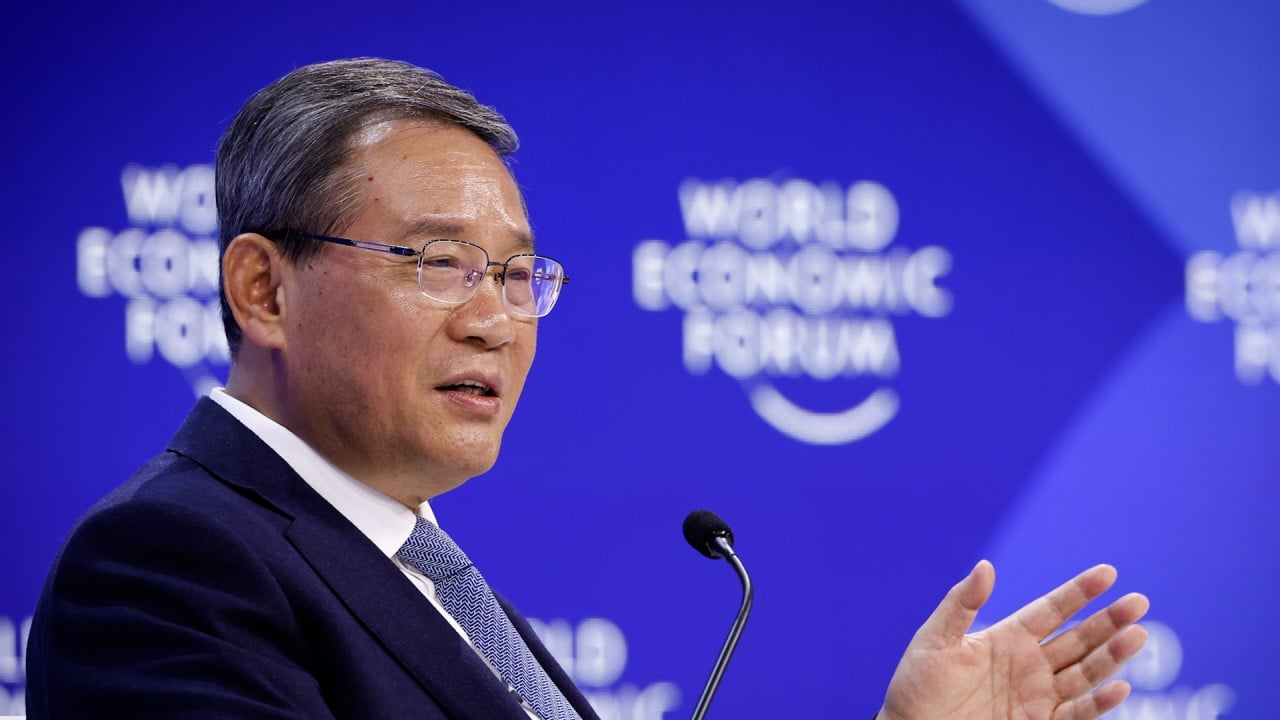
‘Two sessions’ 2024: economy set to lead agenda for China’s top political advisory body
- CPPCC spokesman talks up the country’s economic prospects, pointing to increased holiday spending over the Lunar New Year
- Youth employment and private sector confidence highlighted as priorities
At the press conference for the annual session of the Chinese People’s Political Consultative Conference (CPPCC), spokesman Liu Jieyi devoted most of the time to talking up the country’s economic prospects, vowing to help young people find work, and promising to clear hurdles to private sector growth.
“Looking to the future, our country’s economy is highly resilient. It has great potential and is full of vitality. It has a good foundation and favourable conditions for promoting high-quality development,” Liu said, ahead of the opening of the CPPCC’s annual session on Monday.
“The long-term positive economic trend will continue to consolidate and strengthen and the future is bright.”
In all, 474 million domestic tourists spent more than 632 billion yuan (US$87 billion) over the festive season, a 47 per cent rise in total expenditure from the same time last year, he said.
Liu’s upbeat turn comes amid scepticism at home and abroad over the country’s economic sustainability, and subdued private sector investment.
Liu said the economy had been a major concern for CPPCC members and the top advisory body had held many consultations on the issues, giving their feedback to the ruling Communist Party and the government.
Asked about Beijing’s plan to shore up private sector confidence, he repeated Beijing’s official line that the private sector could play an important role in innovation, jobs and livelihoods, noting that the CPPCC’s ranks included many entrepreneurs.
China’s ‘two sessions’ 2024: economic planning chief puts focus on AI
“They understand the frontline situation and market dynamics,” Liu said.
“They also actively give feedback on social conditions and public opinion on the development of private enterprises, and take part in relevant research and consultation activities to promote the healthy development of the private economy and create a good business environment.”
He said China would continue to implement a good policy mix, release the dividends of policies to promote employment, and “strengthen the stabilisation of the positive employment situation”.

Xie Maosong, a senior researcher at the National Institute of Strategic Studies at Tsinghua University, said the CPPCC was one of the major channels for the party to solicit feedback on economic policies. It was also the body in the political apparatus that was closest to Chinese business elites.
“Many Chinese tycoons are recruited under the All-China Federation of Industry and Commerce or some other organisations under the CPPCC. It is by design a channel for the ruling party to reach out to social and business elites who are not Communist Party members,” Xie said.
“Beijing certainly knows the economic situation. Besides main channels like the CPPCC, it has many other listening posts to get first-hand information. But it has to weigh the pros and cons of the suggestions so that China does not deviate from the long-term goal.”
Lian Ping, director general of the China Chief Economists Forum, said that in the past two years, “internationally, there have been many voices doubtful of China’s economic future, and domestically, there has been a gap between how people are feeling about the economy and what macro data are suggesting”.
‘Two sessions’ 2024: China signals more fiscal pump-priming amid economic doubts
He said there had been strong downward pressure on the economy, especially the decline in the real estate sector, risks in the financial sector and heightened external pressure.
This week, observers would be looking to see how those problems will be remedied.
“Everyone hopes that through the two sessions, we can see some clear direction, have more confidence, and solve some problems,” he said.
Aside from major economic questions, Liu gave an update on the Belt and Road Initiative, saying China had signed more than 240 cooperation documents with more than 150 countries and more than 30 international organisations, “forming the world’s most extensive and largest international cooperation platform”.
“More and more people from different countries have reaped the benefits of policy communication and infrastructure connectivity in the high-quality Belt and Road Initiative,” he said.



